Abstract:
This article provides computational and rule-based approaches for detecting confusion that is expressed in students' comments in couse forums. To obtain reliable, ground ...Show MoreMetadata
Abstract:
This article provides computational and rule-based approaches for detecting confusion that is expressed in students' comments in couse forums. To obtain reliable, ground truth data about which posts exhibit student confusion, we designed a decision tree that facilitates the manual labeling of forum posts by experts. However, manual labeling is costly in time and resources, which limits the amount of data that can be generated using this process. Our strategy for overcoming these limitations was to generate rules for detecting confusion based on student input via hashtags, which reflect the student's affective states. We show that the resulting rules closely align with the ground truth judgement of experts. We next applied these rules to datasets of students' forum posts in a large-scale biology course, thereby automatically generating thousands of labeled instances of “confused posts.” Finally, the resulting dataset was used to train a machine learning model for detecting whether students' posts exhibit confusion in the absence of hashtags. In this task, the pretrained language model based on bidirectional encoder representation from transformers (BERT) was able to outperform traditional machine learning models for classifying confusion in posts. This model was also able to generalize and detect student confusion across different offerings of the same course. Ultimately, the use of pretrained language models of this type will provide teachers with better technologies for detecting and alleviating confusion in online discussion forums by leveraging the combined input of teachers and students.
Published in: IEEE Transactions on Learning Technologies ( Volume: 14, Issue: 5, 01 October 2021)
Funding Agency:
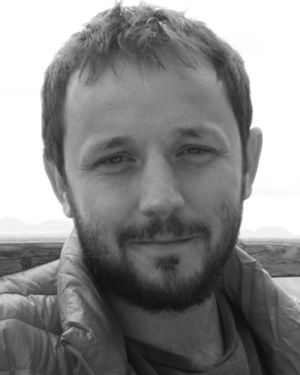
Department of Software and Information Systems Engineering, Ben-Gurion University of the Negev, Beer-Sheva, Israel
Shay A. Geller received the B.Sc. degree in computer science, and the M.Sc. degree in artificial intelligence and data science from the Department of Software and Information Systems Engineering, Ben-Gurion University of the Negev, Beer-Sheva, Israel, in 2018 and 2020, respectively.
He is currently a Data Scientist with HiredScore, Tel Aviv, Israel.
Shay A. Geller received the B.Sc. degree in computer science, and the M.Sc. degree in artificial intelligence and data science from the Department of Software and Information Systems Engineering, Ben-Gurion University of the Negev, Beer-Sheva, Israel, in 2018 and 2020, respectively.
He is currently a Data Scientist with HiredScore, Tel Aviv, Israel.View more
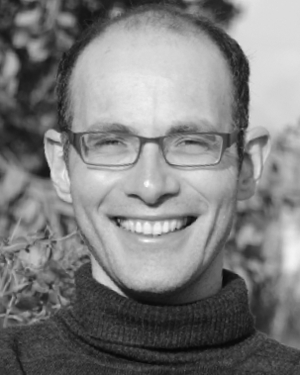
Department of Software and Information Systems Engineering, Ben-Gurion University of the Negev, Beer-Sheva, Israel
School of Informatics, University of Edinburgh, Edinburgh, U.K.
Kobi Gal received the Ph.D. degree in computer science from Harvard University, Cambridge, MA, USA, in 2006.
He is currently an Associate Professor with the Department of Software and Information Systems Engineering, Ben-Gurion University of the Negev, Beer-Sheva, Israel, and a Reader with the School of Informatics, University of Edinburgh, Edinburgh, U.K.
Kobi Gal received the Ph.D. degree in computer science from Harvard University, Cambridge, MA, USA, in 2006.
He is currently an Associate Professor with the Department of Software and Information Systems Engineering, Ben-Gurion University of the Negev, Beer-Sheva, Israel, and a Reader with the School of Informatics, University of Edinburgh, Edinburgh, U.K.View more
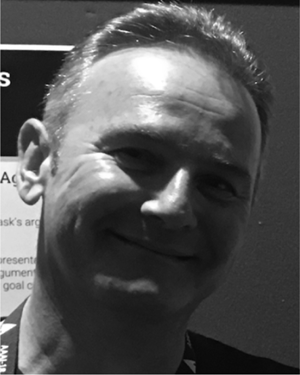
Department of Software and Information Systems Engineering, Ben-Gurion University of the Negev, Beer-Sheva, Israel
Avi Segal received the Ph.D. degree in artificial intelligence from the Department of Software and Information Systems Engineering, Ben-Gurion University of the Negev, Beer-Sheva, Israel, in 2019.
He is currently a Postdoctoral Researcher with Ben-Gurion University of the Negev.
Avi Segal received the Ph.D. degree in artificial intelligence from the Department of Software and Information Systems Engineering, Ben-Gurion University of the Negev, Beer-Sheva, Israel, in 2019.
He is currently a Postdoctoral Researcher with Ben-Gurion University of the Negev.View more

Genome Center and the Department of Biomedical Engineering, University of California, Davis, Davis, CA, USA
Kamali Sripathi received the Ph.D degree in biophysics from the University of Michigan, Ann Arbor, MI, USA, in 2014.
She is currently a Postdoctoral Scholar with the Genome Center, University of California--Davis, Davis, CA, USA.
Kamali Sripathi received the Ph.D degree in biophysics from the University of Michigan, Ann Arbor, MI, USA, in 2014.
She is currently a Postdoctoral Scholar with the Genome Center, University of California--Davis, Davis, CA, USA.View more
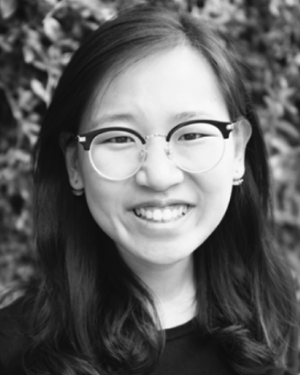
Genome Center and the Department of Biomedical Engineering, University of California, Davis, Davis, CA, USA
Hyunsoo G. Kim received the B.S. degrees in molecular and cell biology, and in psychology from the University of Illinois at Urbana-Champaign, Champaign, IL, USA, in 2015. She is currently working toward the Ph.D. degree in microbiology with the Department of Biomedical Engineering, University of California–Davis, Davis, CA, USA.
She is also affiliated with the Genome Center, University of California–Davis.
Hyunsoo G. Kim received the B.S. degrees in molecular and cell biology, and in psychology from the University of Illinois at Urbana-Champaign, Champaign, IL, USA, in 2015. She is currently working toward the Ph.D. degree in microbiology with the Department of Biomedical Engineering, University of California–Davis, Davis, CA, USA.
She is also affiliated with the Genome Center, University of California–Davis.View more
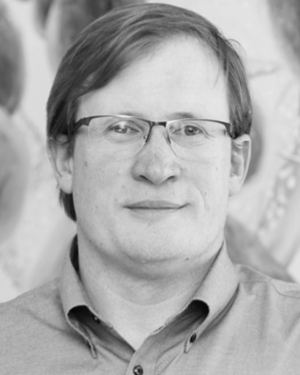
Genome Center and the Department of Biomedical Engineering, University of California, Davis, Davis, CA, USA
Marc T. Facciotti received the Ph.D. degree in biophysics from the University of California–Berkeley, Berkeley, CA, USA, in 2002.
He is currently an Associate Professor with the Genome Center and the Department of Biomedical Engineering, University of California–Davis, Davis, CA.
Marc T. Facciotti received the Ph.D. degree in biophysics from the University of California–Berkeley, Berkeley, CA, USA, in 2002.
He is currently an Associate Professor with the Genome Center and the Department of Biomedical Engineering, University of California–Davis, Davis, CA.View more
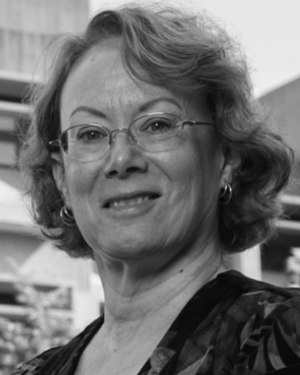
Genome Center and the Department of Biomedical Engineering, University of California, Davis, Davis, CA, USA
Michele Igo received the Ph.D. degree in biology from Harvard University, Cambridge, MA, USA, in 1986.
She is currently Associate Dean of Undergraduate Academic Programs with the College of Biological Sciences, and a Professor with the Department of Microbiology and Molecular Genetics with the University of California–Davis, Davis, CA, USA.
Michele Igo received the Ph.D. degree in biology from Harvard University, Cambridge, MA, USA, in 1986.
She is currently Associate Dean of Undergraduate Academic Programs with the College of Biological Sciences, and a Professor with the Department of Microbiology and Molecular Genetics with the University of California–Davis, Davis, CA, USA.View more
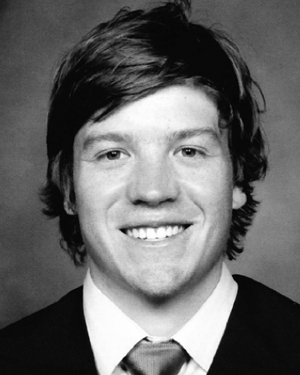
School of Informatics, University of Edinburgh, Edinburgh, U.K.
Nicholas Hoernle received the B.Eng. degree in electronics and computer engineering from the University of Cape Town, Cape Town, South Africa, in 2014, and the M.E. degree in computational science and engineering from Harvard University, Cambridge, MA, USA, in 2018. He is currently working toward the Ph.D. degree in artificial intelligence with the School of Informatics, University of Edinburgh, Edinburgh, U.K.
Nicholas Hoernle received the B.Eng. degree in electronics and computer engineering from the University of Cape Town, Cape Town, South Africa, in 2014, and the M.E. degree in computational science and engineering from Harvard University, Cambridge, MA, USA, in 2018. He is currently working toward the Ph.D. degree in artificial intelligence with the School of Informatics, University of Edinburgh, Edinburgh, U.K.View more
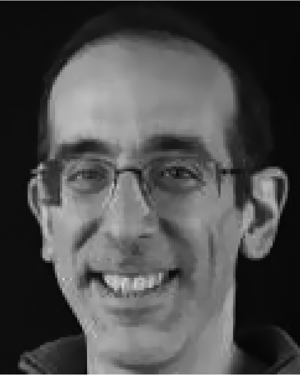
Department of Electrical Engineering and Computer Science, Computer Science and Artificial Intelligence Laboratory (CSAIL), Massachusetts Institute of Technology, Cambridge, MA, USA
David Karger received the Ph.D. degree in computer science from Stanford University, Stanford, CA, USA, in 1994.
He is currently a Professor of Computer Science, and a Member of the Computer Science and Artificial Intelligence Laboratory with the Massachusetts Institute of Technology, Cambridge, MA, USA.
David Karger received the Ph.D. degree in computer science from Stanford University, Stanford, CA, USA, in 1994.
He is currently a Professor of Computer Science, and a Member of the Computer Science and Artificial Intelligence Laboratory with the Massachusetts Institute of Technology, Cambridge, MA, USA.View more

Department of Software and Information Systems Engineering, Ben-Gurion University of the Negev, Beer-Sheva, Israel
Shay A. Geller received the B.Sc. degree in computer science, and the M.Sc. degree in artificial intelligence and data science from the Department of Software and Information Systems Engineering, Ben-Gurion University of the Negev, Beer-Sheva, Israel, in 2018 and 2020, respectively.
He is currently a Data Scientist with HiredScore, Tel Aviv, Israel.
Shay A. Geller received the B.Sc. degree in computer science, and the M.Sc. degree in artificial intelligence and data science from the Department of Software and Information Systems Engineering, Ben-Gurion University of the Negev, Beer-Sheva, Israel, in 2018 and 2020, respectively.
He is currently a Data Scientist with HiredScore, Tel Aviv, Israel.View more

Department of Software and Information Systems Engineering, Ben-Gurion University of the Negev, Beer-Sheva, Israel
School of Informatics, University of Edinburgh, Edinburgh, U.K.
Kobi Gal received the Ph.D. degree in computer science from Harvard University, Cambridge, MA, USA, in 2006.
He is currently an Associate Professor with the Department of Software and Information Systems Engineering, Ben-Gurion University of the Negev, Beer-Sheva, Israel, and a Reader with the School of Informatics, University of Edinburgh, Edinburgh, U.K.
Kobi Gal received the Ph.D. degree in computer science from Harvard University, Cambridge, MA, USA, in 2006.
He is currently an Associate Professor with the Department of Software and Information Systems Engineering, Ben-Gurion University of the Negev, Beer-Sheva, Israel, and a Reader with the School of Informatics, University of Edinburgh, Edinburgh, U.K.View more

Department of Software and Information Systems Engineering, Ben-Gurion University of the Negev, Beer-Sheva, Israel
Avi Segal received the Ph.D. degree in artificial intelligence from the Department of Software and Information Systems Engineering, Ben-Gurion University of the Negev, Beer-Sheva, Israel, in 2019.
He is currently a Postdoctoral Researcher with Ben-Gurion University of the Negev.
Avi Segal received the Ph.D. degree in artificial intelligence from the Department of Software and Information Systems Engineering, Ben-Gurion University of the Negev, Beer-Sheva, Israel, in 2019.
He is currently a Postdoctoral Researcher with Ben-Gurion University of the Negev.View more

Genome Center and the Department of Biomedical Engineering, University of California, Davis, Davis, CA, USA
Kamali Sripathi received the Ph.D degree in biophysics from the University of Michigan, Ann Arbor, MI, USA, in 2014.
She is currently a Postdoctoral Scholar with the Genome Center, University of California--Davis, Davis, CA, USA.
Kamali Sripathi received the Ph.D degree in biophysics from the University of Michigan, Ann Arbor, MI, USA, in 2014.
She is currently a Postdoctoral Scholar with the Genome Center, University of California--Davis, Davis, CA, USA.View more

Genome Center and the Department of Biomedical Engineering, University of California, Davis, Davis, CA, USA
Hyunsoo G. Kim received the B.S. degrees in molecular and cell biology, and in psychology from the University of Illinois at Urbana-Champaign, Champaign, IL, USA, in 2015. She is currently working toward the Ph.D. degree in microbiology with the Department of Biomedical Engineering, University of California–Davis, Davis, CA, USA.
She is also affiliated with the Genome Center, University of California–Davis.
Hyunsoo G. Kim received the B.S. degrees in molecular and cell biology, and in psychology from the University of Illinois at Urbana-Champaign, Champaign, IL, USA, in 2015. She is currently working toward the Ph.D. degree in microbiology with the Department of Biomedical Engineering, University of California–Davis, Davis, CA, USA.
She is also affiliated with the Genome Center, University of California–Davis.View more

Genome Center and the Department of Biomedical Engineering, University of California, Davis, Davis, CA, USA
Marc T. Facciotti received the Ph.D. degree in biophysics from the University of California–Berkeley, Berkeley, CA, USA, in 2002.
He is currently an Associate Professor with the Genome Center and the Department of Biomedical Engineering, University of California–Davis, Davis, CA.
Marc T. Facciotti received the Ph.D. degree in biophysics from the University of California–Berkeley, Berkeley, CA, USA, in 2002.
He is currently an Associate Professor with the Genome Center and the Department of Biomedical Engineering, University of California–Davis, Davis, CA.View more

Genome Center and the Department of Biomedical Engineering, University of California, Davis, Davis, CA, USA
Michele Igo received the Ph.D. degree in biology from Harvard University, Cambridge, MA, USA, in 1986.
She is currently Associate Dean of Undergraduate Academic Programs with the College of Biological Sciences, and a Professor with the Department of Microbiology and Molecular Genetics with the University of California–Davis, Davis, CA, USA.
Michele Igo received the Ph.D. degree in biology from Harvard University, Cambridge, MA, USA, in 1986.
She is currently Associate Dean of Undergraduate Academic Programs with the College of Biological Sciences, and a Professor with the Department of Microbiology and Molecular Genetics with the University of California–Davis, Davis, CA, USA.View more

School of Informatics, University of Edinburgh, Edinburgh, U.K.
Nicholas Hoernle received the B.Eng. degree in electronics and computer engineering from the University of Cape Town, Cape Town, South Africa, in 2014, and the M.E. degree in computational science and engineering from Harvard University, Cambridge, MA, USA, in 2018. He is currently working toward the Ph.D. degree in artificial intelligence with the School of Informatics, University of Edinburgh, Edinburgh, U.K.
Nicholas Hoernle received the B.Eng. degree in electronics and computer engineering from the University of Cape Town, Cape Town, South Africa, in 2014, and the M.E. degree in computational science and engineering from Harvard University, Cambridge, MA, USA, in 2018. He is currently working toward the Ph.D. degree in artificial intelligence with the School of Informatics, University of Edinburgh, Edinburgh, U.K.View more

Department of Electrical Engineering and Computer Science, Computer Science and Artificial Intelligence Laboratory (CSAIL), Massachusetts Institute of Technology, Cambridge, MA, USA
David Karger received the Ph.D. degree in computer science from Stanford University, Stanford, CA, USA, in 1994.
He is currently a Professor of Computer Science, and a Member of the Computer Science and Artificial Intelligence Laboratory with the Massachusetts Institute of Technology, Cambridge, MA, USA.
David Karger received the Ph.D. degree in computer science from Stanford University, Stanford, CA, USA, in 1994.
He is currently a Professor of Computer Science, and a Member of the Computer Science and Artificial Intelligence Laboratory with the Massachusetts Institute of Technology, Cambridge, MA, USA.View more


